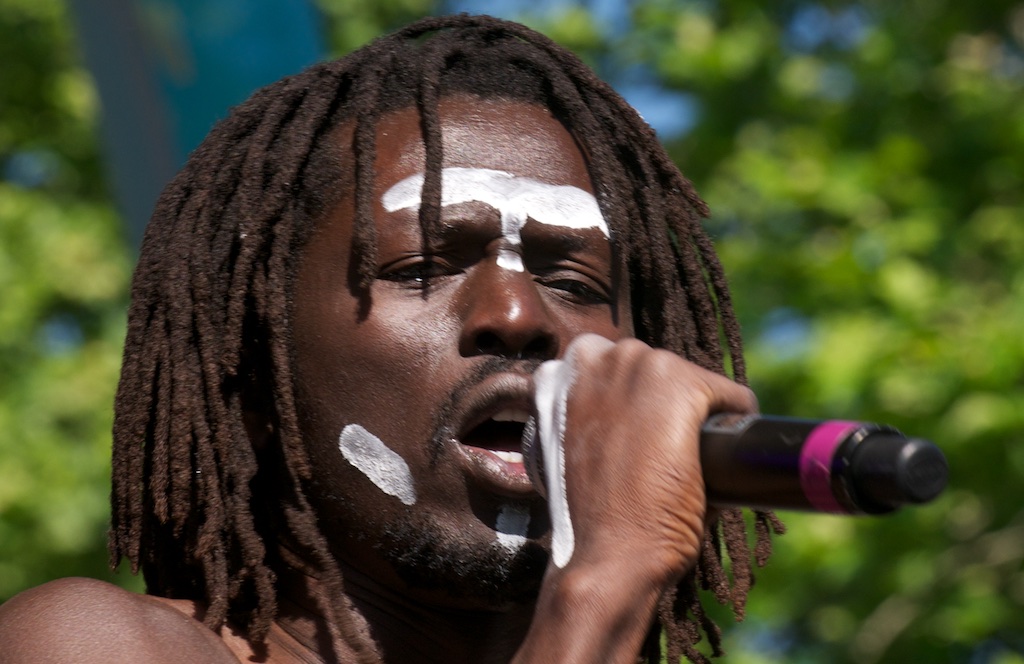Emmanuel Jal is a South Sudanese rapper with a story from hell. A child soldier who fled the conflict that split Sudan into two countries, Jal emerged from his tribulations in 2004 with his first album, Gua, and gained international attention with a CD, War Child, and a film and autobiography of the same name in 2008/2009. His latest album, The Key (Gatwich Records), is a diverse, highly musical African hip-hop production focused on the education and empowerment of children in Africa. Jal is a committed activist but also a highly entertaining artist, as he showed in a spectacular live set at New York’s Central Park SummerStage this June, on a bill with Angelique Kidjo. Afropop’s Banning Eyre caught up with Jal just before his performance. Here’s their conversation, with photographs from the show. (Photos by Banning Eyre.)
Banning Eyre: It’s been seven years since we first spoke. What’s been going on? That was a real turning point in your life when War Child came out. What have you been doing since?
Emmanuel Jal: Seven years to now is a long way. So, I managed to produce two more albums. There was See Me Mama. And now there’s The Key. So I’ve done two more albums on top of War Child. There was Ceasefire before that.
Right. That was your collaboration with Abdel Gadir Salim, such an interesting album. But let’s talk about the new work.
The latest one is called The Key. All the proceeds from it go to fund an enterprise that gives small business entrepreneurs loans to start a business, but those businesses must have an impact in children's lives. I’m still doing the music business. I have the War Child album and I have the movement called We Want Peace--wewantpeace.org--which is my platform now that I travel around the world and share my experiences on. I go to high schools, universities, colleges, conferences, and engage with people and try to recruit more peace soldiers. And the peace soldiers are anybody who’s using their skills to make the world better.
Peace soldiers. That’s nice. So, let’s talk about some of the songs on that new CD.
There’s a song called “My Power,” which is featuring Nile Rodgers. There’s one called “Party” featuring Nelly Furtado. There’s another one called “Scars,” which also features Nelly Furtado. I have a couple of songs with other artists, like Tanika. One of the songs was in a movie, The Good Lie, that I acted in with Reese Witherspoon. It’s an interesting album for anybody who has been following my career because I try to go with the flow. A hook comes in my head. I try to make a song about it. Now at SummerStage, a hook came in my head when one of the sound guys was saying, “I’m in this city where people don’t sleep.” He’s awake in the city. So I said yeah, [sings] “I’m rolling in the city where nobody sleeping. Here we hustle. We hustlin’. Yeah, I sleep with one eye open like a soldier.” So now from there, I’m going to be able to write a song.









